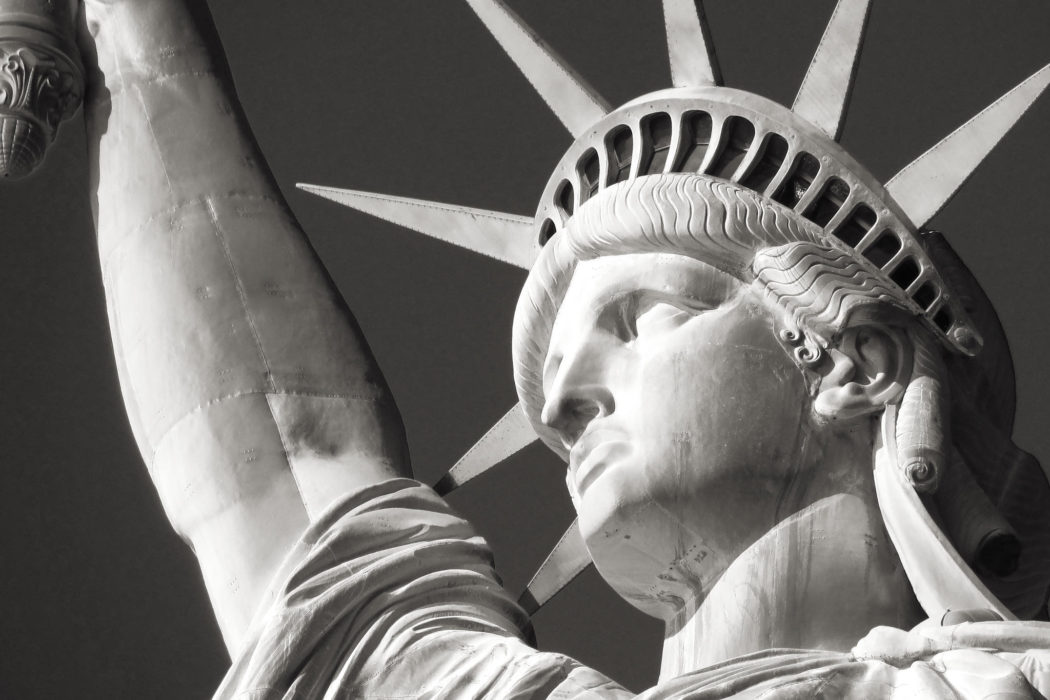“NO AFFAIR IN THE world succeeds without sacrifice,” ‘Abdu’l-Bahá told a gathering on December 1, 1912, in New York’s Upper West Side, while explaining the role America must play in leading the world to peace. Sacrifice was a theme he returned to often during his final days in America, telling the American people that they would be called upon to make great sacrifices in the upcoming decades.
America had been shaped by sacrifice since its inception. The inhabitants of the original Thirteen Colonies, and especially the wealthiest and most powerful, risked their lives and their fortunes, overcoming vast cultural, religious and political divisions, to fight a War of Independence, to forge a country free from the bonds of the old world. It was a revolution that ended not in chaos and ruin, but in a nation founded on the principle that “all men are created equal, that they are endowed by their Creator with certain unalienable Rights, that among these are Life, Liberty and the pursuit of Happiness.”
Abraham Lincoln would invoke these words eighty-seven years later in his Gettysburg Address, in the midst of a war that would save the Union, abolish slavery, and leave more than 700,000 Americans dead. They had made the supreme sacrifice, the President said, and gave “the last full measure of devotion.” “It is for us the living,” he emphasized, “to be dedicated here to the unfinished work which they who fought here have thus far so nobly advanced.” Fifty years later, ‘Abdu’l-Bahá would refer to the Civil War in mixed race gatherings in New York and Washington, highlighting the importance of the sacrifices made, and calling upon both blacks and whites to continue the arduous work of setting aside all traces of prejudice, and committing themselves to wholehearted integration.

America would again be called to sacrifice: during the First World War, fighting for an old world it had long left behind; during the Great Depression; and again in a Second World War that would cause it to emerge as a superpower with the weight of the world on its reluctant shoulders.
James Reston of the New York Times, a two-time Pulitzer Prize-winning author who operated at the highest levels of American journalism from the 1930s to the 1960s, covering the Presidencies of Eisenhower, Kennedy, and Nixon, the founding of the United Nations, the Bay of Pigs, and the Vietnam War, had an uncanny insight into the soul of the nation. “Americans have always been able to handle austerity and even adversity,” he wrote. “Prosperity is what is doing us in.” Reston knew that Americans were capable of the greatest sacrifices, but feared that an abundance of affluence was now leading the nation to complacency.
“Observe how rarely human souls sacrifice their pleasure or comfort for others,” ‘Abdu’l-Bahá told an overflowing lecture hall at Green Acre in Eliot, Maine, on the evening of August 16. At Coronation Hall in Montreal, Canada, on September 5, he noted “how the greatest men in the world — whether among prophets or philosophers — all have forfeited their own comfort, have sacrificed their own pleasure for the well-being of humanity. They have sacrificed their own lives for the body politic. They have sacrificed their own wealth for that of the general welfare. They have forfeited their own honor for the honor of mankind.”
Poverty, ‘Abdu’l-Bahá argued, would find no lasting solution in the United States without willing sacrifices by those with wealth and power. He spoke of the need for legislation to minimize the extremes of poverty and wealth, but rejected the socialist position of forced equality. “This voluntary sharing is greater than equality,” he said, “and consists in this, that man should not prefer himself to others, but rather should sacrifice his life and property for others.” ‘Abdu’l-Bahá noted that giving to the poor should not be a burden on them — that they not be embarrassed, nor lose dignity, nor somehow feel diminished by the experience.

On the evening of November 29, 1912, at the home of Mr. and Mrs. Kinney in New York, ‘Abdu’l-Bahá discussed the meaning of Jesus Christ giving his life for humanity. “There is no doubt,” ‘Abdu’l-Bahá said, “that one who put forth such a claim as Christ announced would arouse the hostility of the world and be subjected to personal abuse.” But without having accepted that, ‘Abdu’l-Bahá told his audience, Jesus “would not have been able to guide a single soul.”
‘Abdu’l-Bahá then explained that human development consists in sacrificing of one’s lower nature in order to acquire the characteristic of our higher nature. “Man must sever himself from the influences of the world of matter, from the world of nature and its laws,” he explained, defining this natural state as one of “ambition and avarice, of self-worship, egotism and passion.” In becoming fully human, he said, the individual “sacrifices the imperfections of nature for the sake of divine perfections,” — perfections which include characteristics such as justice, love, compassion, and generosity.
In a nation with a legacy of sacrifice, ‘Abdu’l-Bahá reminded Americans it was still needed. He challenged them to see that their greatest sacrifices lay ahead.






